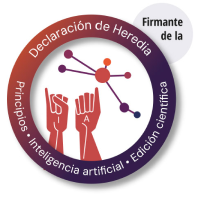 |
 |
 |
 |
 |
 |
 |
 |
 |
 |
 |
 |
Abstract
This article presents the systematization of a two-year sociological intervention among a group of activists in the agricultural export region known as the San Quintín valley-on the border between Mexico and the United States-which aimed to study the emergence of a regional identity due to the mobilization of residents and agricultural workers during the last two decades of the twentieth century. In the course of our research to define a regional identity, we found a transformation of the identity of the movement which is linked to macro-structural changes in the area and a struggle against exclusion.
References
Balibar, Etienne. 1991. Is there a Neo-racism? En Race, Nation, Class. Ambiguous Identities, editado por ídem., e Immanuel Wallerstein. Londres: Verso.
Barth, Fredrik. 1969. Introduction. En Ethnic Groups and Boundaries: The Social Organization of Cultural Difference, editado por ídem., 9-38. Londres: George Allen y Unwin.
Benmayor, Riña y Andor Skotnes. 2005. Some Reflections on Migration and Identity. En Migration and Identity, editado por ídem., 1-18. New Brunswick: Transaction Publishers.
Bourdieu, Pierre. 2002. La distinción. Criterio y bases sociales del gusto. México: Taurus.
COLEF-CONACYT. 2003. Elaboración del proyecto "Migración trabajo agrícola y etnicidad", con base en los datos del XII Censo general de población y vivienda, 2000, del Instituto Nacional de Estadística, Geografía e Informática.
COLEF-CONEPO. 2003. Encuesta a jornaleros agrícolas en campamentos del valle de San Quintín.
Cruz Aguirre, Javier. 1999. Cheques falsos. Semanario Zeta. 13 al 19 de agosto.
––––––––––. 1996. San Quintín: niños trabajando en la pizca de tomate y hortalizas. Semanario Zeta. 29 de noviembre al 5 de diciembre.
Du Bry,Travis. 2003.The New Pioneers: Farm Laborers, Settlement and Community in the California Desert. Ponencia presentada en coloquio internacional Movilidad y construcción de los territorios de la multiculturalidad, de la Universidad Autónoma de Coahuila, Saltillo.
Edelman, Marc. 1991. Peasants Against Globalization. Rural Social Movements in Costa Rica. Stanford: Stanford University Press.
Giménez, Gilberto, 1994. El concepto de región. Apuntes para una teoría de la región y de la identidad regional. Estudios sobre las Culturas Contemporáneas VI (18): 165-173.
Kearney, Michael. 2008. La doble misión de las fronteras como clasificadores y como filtros de valor. En Migración, fronteras e identidades étnicas transnacionales, coordinado por Laura Velasco Ortiz, 79-110. Tijuana: COLEF y Miguel Ángel Porrúa.
Martínez Neira, Christian. 2008. ¿Qué son los movimientos étnicos? Las categorías de igualación y diferenciación. En Revisitar la etnicidad. Miradas cruzadas en torno a la diversidad, coordinado por Daniel Gutiérrez Martínez y Helene Balslev Clausen, 71-82. México: El Colegio de Sonora, El Colegio Mexiquense, Siglo XXI.
McDonald, Kevin. 2002. L'Intervention Sociologique. After Twenty Five Years: Can it Translate into English? Qualitative Sociology 25 (2): 247-60.
Melucci, Alberto. 1992. Frontier Land: Collective Action Between Actors and Systems. En Studyng Collective Action, editado por Mario Diani y Ron Eyerman, 238-258. Londres: Sage Publication.
––––––––––. 1989. Nomads of the Present. Londres: Hutchinson Radius.
Ngai, M. 1999. The Architecture of Race in American Immigration Law: A Reexamination of the Immigration Act of 1924. The Journal of American History 86 (1): 67-92.
Passeron, Jean Claude. 1991. Le raisonnement sociologique. Paris: Nathan.
Rapport, Nigel y Andrew Dawson. 1989. The Topic and the Book. En Migrants of Identity. Perception of Home in a World of Movement, editado por ídem., 3-18. Nueva York: Berg.
Rosaldo, Renato. 1989. Culture and Truth: The Remaking of Social Analysis. Boston: Beacon Press.
Schmitt-Egner, Peter. 2002. The Concept of "Region": Theoretical and Methodological Notes on its Reconstruction. European Integration 24 (3): 179-200.
Touraine, Alain. 1981. The Voice and the Eye: An Analysis of Social Movements. Cambridge: Cambridge University Press.
Velasco Ortiz, Laura. 2006. Proyecto "Migración, trabajo agrícola y etnicidad. La articulación de lo global, nacional y local en valle de San Quintín, Baja California", CONACYT.
––––––––––. 2002. El regreso de la comunidad: migración indígena y agentes étnicos. Los mixtecos en la frontera México-Estados Unidos. México: El Colegio de México, COLEF.
Open access policy
The authors who publish in región y sociedad accept the following conditions:
In accordance with the copyright laws, región y sociedad recognizes and respects the authors’ moral rights, as well as the ownership of property rights, which will be transferred to the journal to disseminate the articles in open access. región y sociedad does not charge the authors for submitting and processing articles for publication.
All the texts published by región y sociedad —with no exception— are distributed under a Creative Commons license 4.0 Attribution – Noncommercial (CC BY-NC 4.0 International), which allows third parties to use the publication as long as they mention the works’ authorship and the first publication in this journal.
The authors can enter into independent and additional contractual agreements for the nonexclusive distribution of the version of the article published in región y sociedad (for instance include it into an institutional repository or publish it in a book) as long as they clearly indicate that the work was published for the first time in región y sociedad.
For all the above, the author(s) must send the Letter of transfer of property rights of the first publication duly filled in and signed by the author(s). This letter can be sent by e-mail as a PDF to: region@colson.edu.mx






